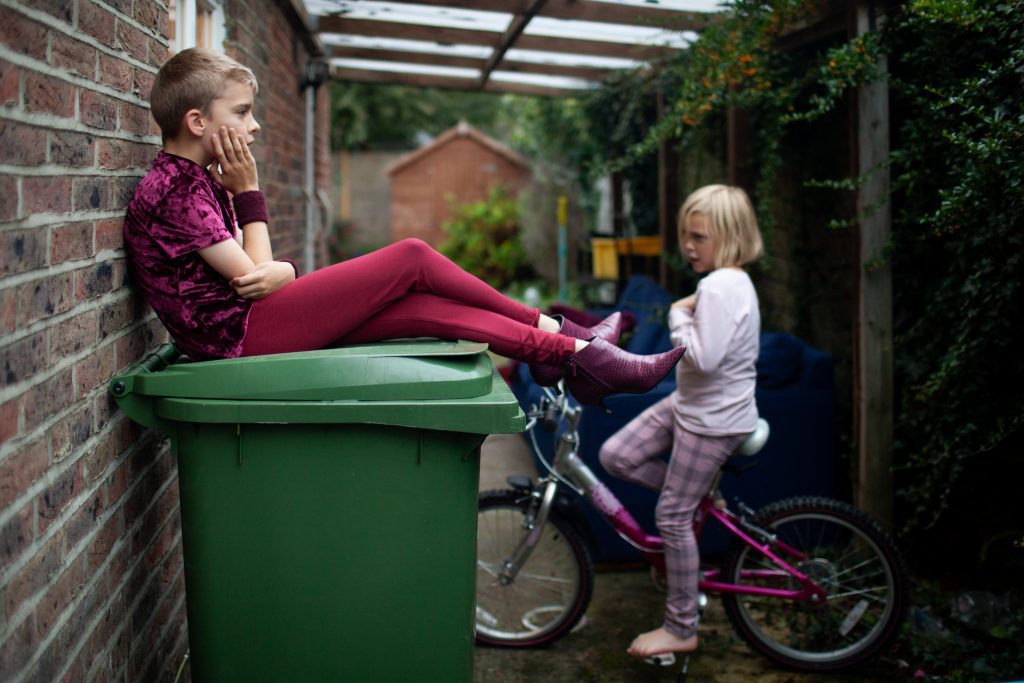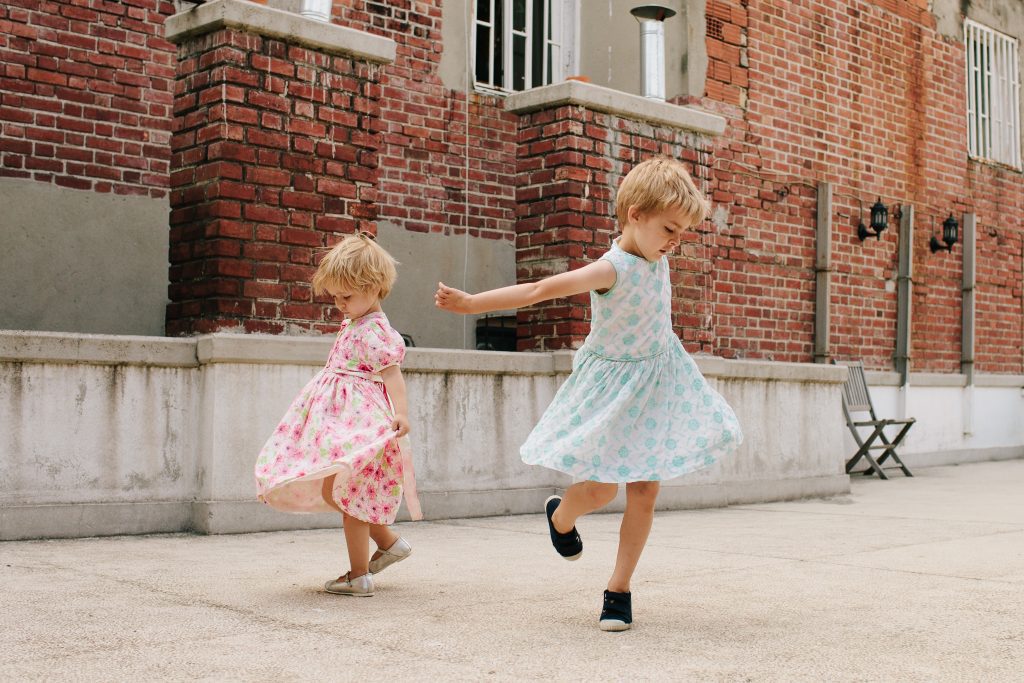
We’ve decided to get together with some of our parents and look at a common question being discussed online:
Are kids being identified as trans because of the toys they play with or the clothes they like to wear?
The answer, of course is, ‘no’.
Children play with all sorts of toys and that doesn’t mean for a second they’re transgender. The same goes – of course – for clothing.
Nonetheless, some people do still believe that parents are basing their understanding of their child’s gender identity on clothes and toys and it’s important we address such a common misconception.
To put our hands up at the start, parents of trans kids do sometimes talk about toys and clothes. It helps explain their child’s gender identity. If a parent were to say, ‘I first noticed my child was different to my daughters because he was playing with trucks rather than dolls’ it’s easy to see how that could be misconstrued as: ‘I think my child is trans because they played with trucks not dolls’. Discussing gender identity is difficult enough, but for children and their families it can feel impossible to put things into words.
So we asked our parents to explain what toys and clothes had to do with their child’s gender expression and, while most said they weren’t relevant at all, we did get some interesting responses.

Jo Thornicroft says her trans daughter, Teddie was into so-called ‘girl toys’ before she transitioned which was totally fine but then her tastes changed:
“My 11 year old trans daughter definitely did choose predominately barbies and dolls when she was younger but then, once she transitioned, she became transfixed with wrestling and all things WWE! Toys weren’t very important to me as a parent and I just wanted her to play happily.”
Sha got in touch to say: “My daughter is a jeans-wearing, skateboarding trans girl. For her, being trans is nothing to do with wearing dresses or playing with dolls, it’s who she is deep down inside.”
In fairness, parents have been dissecting and observing their children’s toy and clothing choices for countless generations. Parents of trans kids are no different. Still, when parents of trans kids do so, it can be taken as a sign that clothes and toys are a guiding factor in the way they perceive their child’s gender identity.
For mum, Melanie, it’s other people who seem obsessed with her daughter’s clothes and toys.
“Toys have played no part in my trans daughter’s gender identity whatsoever. She has always played with cars, dinosaurs and lego, occasionally playing with a doll. When dressing up she rarely dresses as a princess preferring to be a wizard or her own creation. Her choice of toys bears no impact upon the gender she identifies as.”

So, if toys and clothes are so irrelevant, why would parents of trans children sometimes use them to explain their journey? Our CEO, Susie Green has done just that in the past so we asked her:
“I think parents struggle sometimes to explain how their child came out as trans. I know I did when I first started talking about it and actually, I still do. We often revert to talking about clothes and toys simply because it’s easier for other people to understand. They always ask ‘how did you know your child was trans?’ and there’s no easy answer because it’s not about me knowing; it’s about the child knowing for themselves. Still, I think toys and clothes are something everyone can relate to but that doesn’t mean I saw my child playing with a doll and lept to the conclusion they’re trans; that would be ridiculous. The thing is, when you have to keep justifying who your child is, it gets really exhausting because people often don’t understand. It’s such an intrusive conversation and anything you say can be used to make out you’re a bad parent.”
It isn’t the parent who ‘decides’ their child is trans. In fact, many if not most of the people who come to Mermaids seeking support find it difficult to accept what their child is telling them at first. Trans identity comes from trans individuals, and nobody else.

It’s not always an easy thing to get your head around, we know. That’s part of the problem. For some, accepting that your child is trans is one of the most challenging things a parent can do and that’s partly because of the fundamental question behind this blog today: how does a parent or guardian know their child is trans?
As Susie Green said, this question can become exhausting when asked endlessly by other people and it’s impossible to answer every time in a detailed and emotionally-engaged way.
After Caroline’s daughter came out as trans, she found herself subjected to a wave of intrusive questions:
“I’m tired of being asked if I’m disappointed and hurting that my child is trans; I’m the proudest happiest mum there is, I have a beautiful, well rounded and most importantly happy daughter.”

Lisa Raynes says it’s hard to keep justifying her son Alex’s gender identity to her friends, her family and even strangers:
“It’s such an invasive question. If it’s a friend then I just tell them ‘he is a boy, that’s all.’ With family, I used to try to explain but it became so tiring. In the end, I realised that people are either going to accept and understand that Alex knows who he is…or they won’t. No talk of toys or clothes would change their minds, even if those things were relevant, which they’re not. I wish people would stop questioning it and trust that Alex knows who he is.”
Unfortunately, many people don’t accept that explanation and, when we step away from our own experiences with bright, confident trans young people, we can understand why. In all walks of life, human beings seek tangible, material and relatable evidence to help them feel reassured when they encounter something new.
Once she transitioned, her school work shot through the roof. She has never looked back.
Meanwhile however, the parents of trans young people want nothing more than to escape the questions and focus on keeping their family safe and happy, just like anybody else.
It’s a cruel irony that those making righteous demands for material proof of a child’s transgender identity are often the very same people who will fly into a state of mocking incredulity at the merest mention of a doll or a football. We often wonder, what evidence are they asking a parent to offer, other than their own child’s innate identity?
It is important to remember that most parents of trans young people are simply not trained in the often aggressive attack and counter-attack of recreational debate, whether it’s on television, online or at the school gates. Most are simply mums, dads and carers going about their daily lives, doing their jobs, worrying about bills and trying to get the kids to brush their teeth at bedtime. They don’t get a kick out of debating trans identities. They’re simply listening to and supporting a child who’s surprised them with news they never expected to hear and, rather than forcing them to pretend to be someone else, they’ve resolved to show them love, understanding and support.
As mum, Lisa says about Alex:
“My son told me he was trans so that was the signifier, really, nothing more than that. I’ve spoken about toys and things in the past because it makes conversations easier but I didn’t ever think much about the clothes they wore or the toys they played with in reality. It was the way he behaved when he was misgendered and the happiness and light in his face when he was called a boy; that’s what I noticed. Seeing him so unhappy was hideous, the worst thing in the world, and seeing him now as the successful, confident young man he is, means the world.”

To make it clear, our experience shows that parents do sometimes talk about toys and clothes as a way of explaining something very complicated, sensitive and personal. But nobody is suggesting a child should be considered trans the moment they start playing with certain types of toy or wearing certain clothes. Again: gender identity comes from within each individual, individually.
Hopefully this blog has helped to make things a little clearer for those confused about the question of toys, clothes and trans identity. Perhaps for those reading this without trans kids, rather than asking: “how do you know your child is trans?” instead, ask what difference parents have seen in their child since they were allowed to express themselves freely? The answers can be quite moving.
Jo Thornicroft has seen a huge difference in her daughter, Teddie: “Once she transitioned, her school work shot through the roof. Previously she was angry and near to the bottom of the class even with assisted learning. She would often slam doors and break stuff in frustration. By the end of the first academic year after she transitioned, she was off assisted learning, happy in several friendship groups and played Zazu in the Lion King school play as she was so confident and could learn all the lines. She has never looked back.”
Go Teddie!
No matter your reason for coming to this article, thank you for taking the time to read it.
